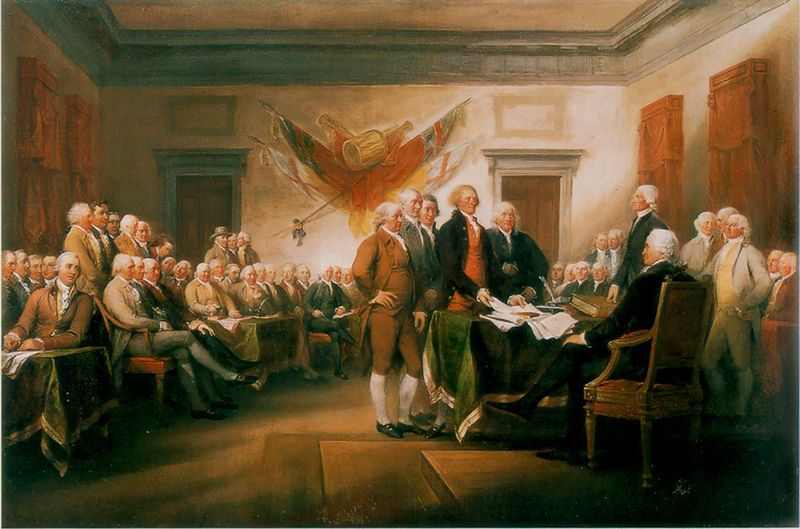There is much talk these days about divisiveness and political polarization, even within families. I have heard many fellow conservatives describe how a Thanksgiving dinner at their house is never complete without a political rift arising from their supposedly misguided view on some issue or other. I imagine my liberal friends have similar stories. At my own family gatherings, there is invariably some gratuitous derision of Donald Trump–one could be forgiven for thinking he had personally undercooked the burgers. Recently though, I have had reason to hope that the differences between myself and some of my relatives are less intractable than I had imagined.
This past Christmas, my grandparents —who have always graciously tolerated and engaged with my political views, even when they frequently disagreed – gave me a book. My grandma could probably be considered an “old-school” Democrat. Growing up, I thought of my grandpa as a Rockefeller- or Ford-type Republican. Since the 2016 election, he has become, in my mind, a “fiscally conscious” liberal. They may disagree with these assessments, but hopefully not with what follows. The book is called First Principles: What America’s Founders Learned from the Greeks and Romans and How That Shaped Our Country, by Thomas Ricks. In comprehensive but readable detail, the book explores the ancient philosophers, schools of thought, and personal paths of education that undergirded the thinking of four prominent Founding Fathers.
In comprehensive but readable detail, the book explores the ancient philosophers, schools of thought, and personal paths of education that undergirded the thinking of four prominent Founding Fathers.
It is natural to wonder what Washington, Adams, Jefferson, and Madison would think of what has become of their grand experiment in constitutional republicanism. Ricks, a Pulitzer Prize winner, was among the millions of Americans who woke up concerned on November 9, 2016. Whatever their party or ideology, these Americans presumably joined Ricks in questioning the current state of our democracy. I know my grandparents certainly did. First Principles was clearly written as a stinging, educated rebuke of “Trumpism”, but Ricks’ insights can appeal to Americans across the political spectrum.
Ricks delves into the same classical sources that informed our first four presidents. From Homer to Cato, and Aristotle to Cicero, he outlines how each Founder’s personal philosophy and outlook compared to that of the ancients. He investigates each president’s formal education (or lack thereof, in Washington’s case) coupling them with examinations of intellectual movements from the Roman rhetoricians to the Scottish Enlightenment. All of these help us understand how the Founders developed their conceptions of independence, self-governance, and freedom. Whether one is apoplectic that a tasteless and vulgar reality-TV star with no discernable political philosophy captured the presidency, or elated that he represented a necessary change to tens of millions, the Founders’ wisdom is eternal. First Principles reminds readers of the history and tradition we have in common, rather than the squabbles that set us apart.
First Principles reminds readers of the history and tradition we have in common, rather than the squabbles that set us apart.
I finished First Principles cover to cover before this semester began and returned it to my grandma so she could read it herself. She finished it inhumanly quickly and told me she enjoyed and learned from it, just as I had. Now my grandpa is reading it. While we may disagree on some of the days’ political issues, we can find solace in the common ground that First Principles reveals. Most Americans approach modern problems from a similar perspective. They value a certain degree of fidelity to our founding documents and an adherence to those documents’ underlying principles. First Principles is more than worth the read, and at the very least provides a substantive subject for next Thanksgiving.
